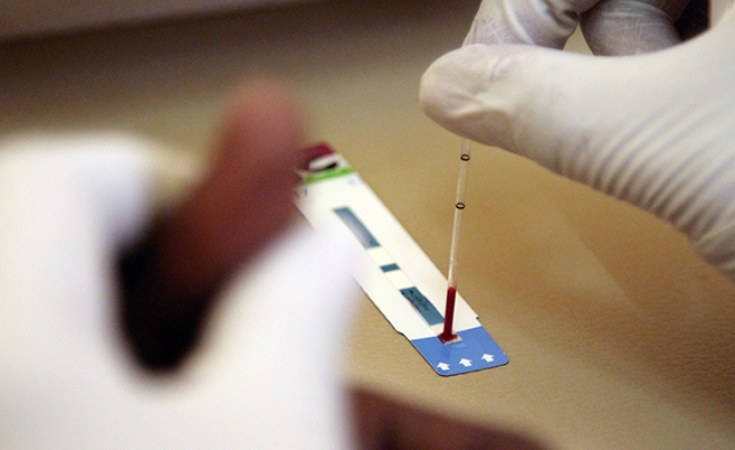As someone who has been involved in HIV/AIDS prevention and control for years, I vividly remember a time the epidemic seemed unsolvable, globally and in Africa.
When I was working on HIV/AIDS at UNAIDS and the World Health Organization's Africa Regional Office in the late 1990s and early 2000s respectively, the outlook was certainly bleak.
The global community was in the process of developing a coherent response to the epidemic, and successful prevention and treatment programs were few and far between - and were available almost exclusively in high-income countries. In 2000, less than .01% of the almost 21 million people living with HIV in Africa were receiving needed antiretroviral treatment. During that time, becoming infected with HIV was a death sentence for most patients in the developing world, particularly in Africa.
Today, we are thankfully able to tell a much different and more positive story. As I join global leaders this week at the 18th International Conference on AIDS and STIs in Africa in Harare, Zimbabwe, I am impressed with the progress we have made together as a global community. Thanks to the incredible contributions of governments, donors, partners, civil society, communities and people living with HIV, we've halted and begun to reverse the spread of HIV in Africa and across the globe.
Progress over the past fifteen years has been particularly commendable in the WHO Africa Region - which includes 47 of the continent's countries. A new WHO report launched this week shows that the number of new infections has declined by 41% since 2000, more people are being reached by preventive services, and more people with HIV/AIDS know their status. Treatment scale-up has also been extraordinary; today, 11 million people in Sub-Saharan Africa are receiving antiretroviral treatment compared with 11,000 in 2000.
These strides are incredibly encouraging and demonstrate that if we remain committed, the new Sustainable Development Goal to end the HIV/AIDS epidemic by 2030 is not only aspirational, but actually a realistic prospect. We cannot let our recent progress sow complacency. With the end finally in sight, now is not the time to relent; it is the time to strengthen our resolve and redouble our efforts.
As I see it, we need to focus on three key areas to finish the job in the African Region and around the world. First, we need to improve prevention. Rates of new HIV infection, while much lower than in the past, have not fallen quickly or substantially enough.
If rapidly implemented, the WHO's new treatment guidelines, which recommend that all individuals diagnosed with HIV receive immediate treatment, could have a catalytic effect by reducing transmission rates. We also need to ensure preventive services reach everyone, particularly the most vulnerable populations, including women, young people, injection drug users, sex workers, prisoners and other people at risk.
Second, we need to strengthen our health systems. In many countries, systems are too weak to provide the high-quality preventive and treatment services needed to drive game-changing progress - particularly in hard-to-reach areas. If we want to test everyone at risk, treat everyone with HIV, and step up prevention everywhere, we need health systems that are accessible, equipped, well-staffed and resilient.
Finally, we need stronger commitments from national governments. For many years, the fight against HIV/AIDS was led largely by generous international donors, but the tide is turning. It is time for governments across Africa and across the developing world to step up and commit the political and financial resources needed to stop the HIV/AIDS epidemic in its tracks.
There is no question our goals are ambitious; however, over the course of my career, I've witnessed the power of setting ambitious goals. In 2003, when WHO and UNAIDS launched the "3 by 5" initiative, few thought the goal of reaching 3 million people globally with antiretroviral treatment by 2005 was even close to achievable. While we did not make the 2005 deadline, the number of people receiving antiretroviral therapy in low-and middle-income countries more than tripled in just two years - and the initiative helped generate momentum, contributing to where we are today.
So, indeed, we have much to celebrate. Never in my career have I been more optimistic about our ability to curb this epidemic. I am confident that if we up our prevention game, build stronger, more resilient health systems, and increase national-level investment in HIV/AIDS, we can - and we will - end AIDS within a generation.
Dr. Matshidiso Moeti is the World Health Organization's Regional Director for Africa.


